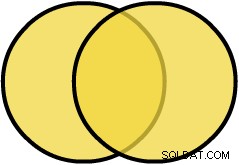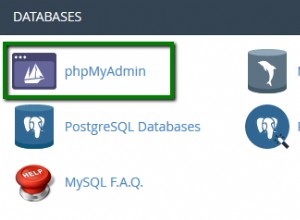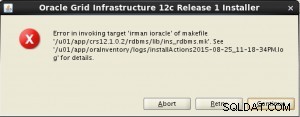Uma maneira é usar o
exists predicado com uma subconsulta correlacionada que verifica se o símbolo específico possui mais de um preço.:select * from table1 t
where exists (
select 1
from table1
where symbol = t.symbol
and price <> t.price);
Exemplo de violino SQL
Isso retornaria:
| Date | Type | Symbol | Price |
|------------------------|------|-----------|--------|
| June, 30 1995 02:00:00 | gaus | 313586U72 | 109.25 |
| June, 30 1995 02:00:00 | gbus | 313586U72 | 108.94 |
| June, 30 1995 02:00:00 | agus | SRR | 10.25 |
| June, 30 1995 02:00:00 | lcus | SRR | 0.45 |
| July, 01 1995 02:00:00 | gaus | 313586U72 | 109.25 |
| July, 01 1995 02:00:00 | gbus | 313586U72 | 108.94 |
Edit:inspirado pela resposta inteligente de Gordon Linoff, outra opção poderia ser usar
avg() como uma função em janela:select Date, Type, Symbol, Price
from (
select Date, Type, Symbol, Price, avg = avg(price) over (partition by symbol)
from table1) a
where avg <> price;
Edit:com uma verificação para garantir que apenas duplicatas na mesma data sejam retornadas:http:/ /www.sqlfiddle.com/#!6/29d67/1




